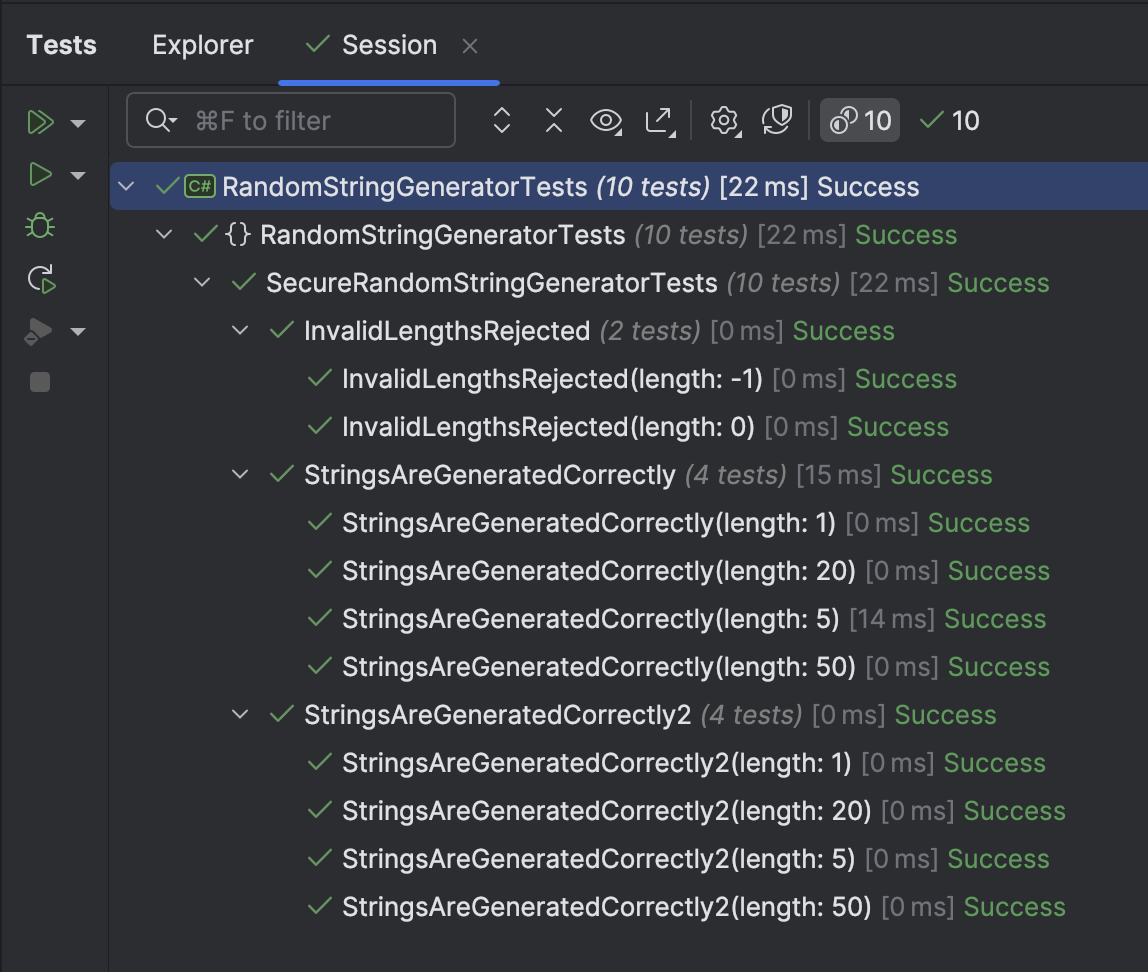Generating A Cryptographically Random String in C# & .NET
[C#, .NET]
In our previous post, Generating A Random String In C# & .NET, we looked at how to generate a random string of specified length.
In this post, we will look at how to generate cryptographically secure random strings, especially in cases where the strings need to be truly random. This is important when requirements involve security and encryption.
Our code will largely be similar to the previous case.
We will re-use the same alphabet:
public static class Constants
{
public const string Alphabet = "ABCDEFGHJKMNPQRSTUVWXYZabcdefghjkmnpqrstuvwxyz123456789";
}
The code for the generation will make use of a true random number generator, found in the RandomNumberGenerator class in the System.Security.Cryptography namespace.
public static string GenerateRandomString(int length)
{
// Ensure length is at least 1
ArgumentOutOfRangeException.ThrowIfLessThan(length, 1);
// Generate string
var result = new char[length];
for (int i = 0; i < length; i++)
{
result[i] = Constants.Alphabet[RandomNumberGenerator.GetInt32(Constants.Alphabet.Length)];
}
return new string(result);
}
There is another way of doing this:
public static string GenerateRandomString2(int length)
{
// Ensure length is at least 1
ArgumentOutOfRangeException.ThrowIfLessThan(length, 1);
// Generate a byte array of required length
var randomBytes = new byte[length];
using (var rng = RandomNumberGenerator.Create())
{
// Fill the array with random bytes
rng.GetBytes(randomBytes);
//Get the corresponding character for each the byte using modulus
return new string(randomBytes.Select(x => Constants.Alphabet[x % Constants.Alphabet.Length]).ToArray());
}
}
There is, however, a slight disadvantage of this technique - given that the length of the alphabet is not an exact power of 2, there is a very slight bias in terms of the returned distribution after the modulo operation.
We then write some tests to verify that both methods return expected results:
public static string GenerateRandomString(int length)
{
// Ensure length is at least 1
ArgumentOutOfRangeException.ThrowIfLessThan(length, 1);
// Generate string
var result = new char[length];
for (int i = 0; i < length; i++)
{
result[i] = Constants.Alphabet[RandomNumberGenerator.GetInt32(Constants.Alphabet.Length)];
}
return new string(result);
}
public static string GenerateRandomString2(int length)
{
// Ensure length is at least 1
ArgumentOutOfRangeException.ThrowIfLessThan(length, 1);
// Generate a byte array of required length
var randomBytes = new byte[length];
using (var rng = RandomNumberGenerator.Create())
{
// Fill the array with random bytes
rng.GetBytes(randomBytes);
//Get the corresponding character for each the byte using modulus
return new string(randomBytes.Select(x => Constants.Alphabet[x % Constants.Alphabet.Length]).ToArray());
}
}

And we can see some samples of the generated strings:
Generated string: x of length 1
Generated string: k8gKE1qe7upq72v56T8H of length 20
Generated string: xcPca of length 5
Generated string: StZFAEjQBbU621DjVGcxD3abGcKjuVj5J1DAzWf8S7rD79ExyP of length 50
TLDR
You can use the RandomNumberGenerator class to generate cryptographically random strings for use in scenarios where true randomness is key, such as security.
The code is in my GitHub.
Happy hacking!